
Maribor: The Heartbeat of Styria
Maribor, nestled in the embrace of the Drava River and surrounded by lush vineyards, is Slovenia’s second-largest city. Known for its rich history and vibrant cultural scene, Maribor seamlessly blends the charm of its medieval past with the energy of a modern urban center. Stroll through the Old Town and explore landmarks like the Maribor Castle, which houses the Regional Museum. Don’t miss the historic Lent district, home to the oldest vine in the world, over 400 years old. The city’s lively squares, such as Main Square and Slomšek Square, are perfect for people-watching and soaking in local life. Maribor is also a gateway to outdoor adventures. The nearby Pohorje Mountains offer year-round activities, from skiing in winter to hiking and mountain biking in summer. The city’s connection to nature is mirrored in its parks, like the Three Ponds Park, a serene retreat within the urban landscape. Wine lovers will revel in Maribor's wine tradition. The region is dotted with wine cellars and vineyards, where you can sample exquisite local wines. The city hosts the annual Old Vine Festival, celebrating its winemaking heritage. For a taste of local culture, visit the Slovenian National Theatre and the Maribor Art Gallery. The bustling Maribor Market is a treasure trove of local produce and artisanal goods, giving you a true sense of the city’s culinary delights. Maribor’s warm hospitality, scenic beauty, and rich cultural tapestry make it a must-visit destination for any traveler seeking a blend of history, adventure, and relaxation.
Local tips in Maribor
- Visit the Old Vine House to see the world's oldest vine and learn about Maribor's wine history.
- Explore the city by foot or bike to fully appreciate its scenic beauty and historical sites.
- Check the schedule of the Slovenian National Theatre for performances during your visit.
- Take a day trip to the nearby Pohorje Mountains for outdoor activities.
- Try local delicacies at Maribor Market for an authentic taste of Slovenian cuisine.
Neighbourhoods in Maribor
Maribor: The Heartbeat of Styria
Maribor, nestled in the embrace of the Drava River and surrounded by lush vineyards, is Slovenia’s second-largest city. Known for its rich history and vibrant cultural scene, Maribor seamlessly blends the charm of its medieval past with the energy of a modern urban center. Stroll through the Old Town and explore landmarks like the Maribor Castle, which houses the Regional Museum. Don’t miss the historic Lent district, home to the oldest vine in the world, over 400 years old. The city’s lively squares, such as Main Square and Slomšek Square, are perfect for people-watching and soaking in local life. Maribor is also a gateway to outdoor adventures. The nearby Pohorje Mountains offer year-round activities, from skiing in winter to hiking and mountain biking in summer. The city’s connection to nature is mirrored in its parks, like the Three Ponds Park, a serene retreat within the urban landscape. Wine lovers will revel in Maribor's wine tradition. The region is dotted with wine cellars and vineyards, where you can sample exquisite local wines. The city hosts the annual Old Vine Festival, celebrating its winemaking heritage. For a taste of local culture, visit the Slovenian National Theatre and the Maribor Art Gallery. The bustling Maribor Market is a treasure trove of local produce and artisanal goods, giving you a true sense of the city’s culinary delights. Maribor’s warm hospitality, scenic beauty, and rich cultural tapestry make it a must-visit destination for any traveler seeking a blend of history, adventure, and relaxation.
When is the best time to go to Maribor?
Iconic landmarks you can’t miss
Mariborsko Pohorje
Experience the breathtaking slopes and year-round outdoor adventure at Mariborsko Pohorje, Slovenia's premier ski resort and tourist attraction.
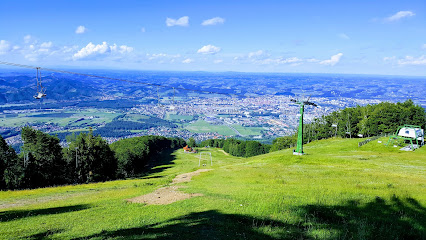
Maribor Castle
Explore Maribor Castle, a stunning historical gem that offers breathtaking views, rich culture, and fascinating exhibits in the heart of Slovenia.
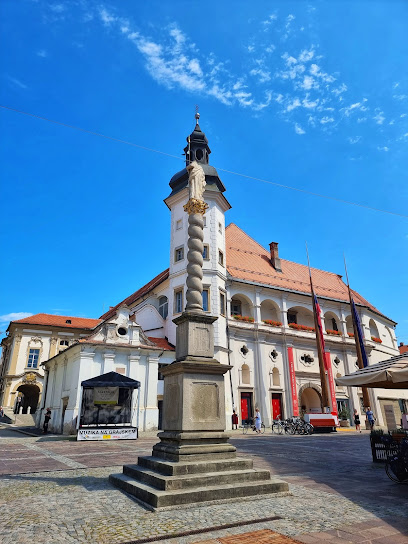
Vodni stolp - Water Tower
Experience the historical Vodni Stolp in Maribor, a unique bar and tourist attraction offering local wines and stunning views.
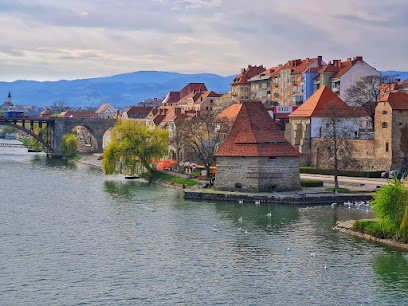
Plague Column
Explore the Plague Column in Maribor: A historic landmark rich in Baroque architecture and vibrant local culture in the heart of Slovenia.
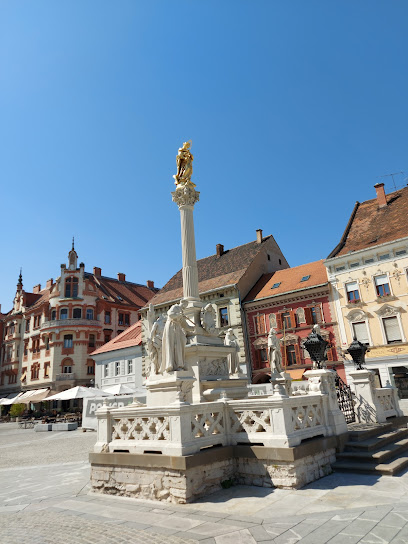
Trg Leona Štuklja
Discover the serene beauty of Trg Leona Štuklja, a vibrant park in the heart of Maribor, perfect for relaxation, picnics, and cultural experiences.
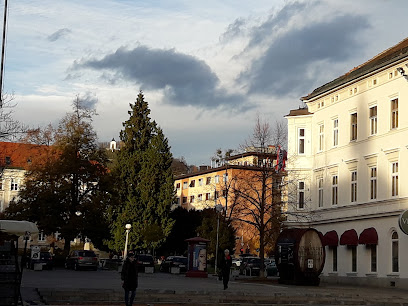
Stolna župnija Maribor
Discover the architectural beauty and rich history of Stolna župnija Maribor, Slovenia's stunning cathedral and a cultural landmark.
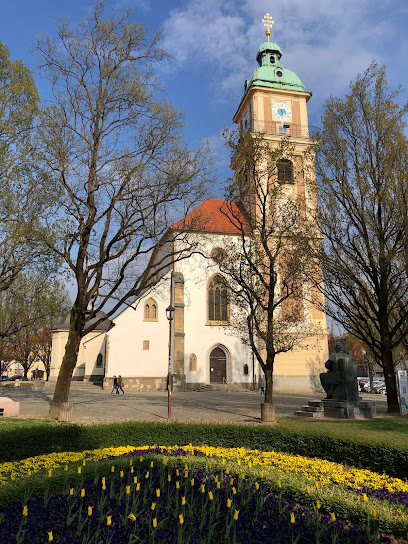
Železniška postaja Maribor
Experience the charm and history of Železniška postaja Maribor, your gateway to exploring Slovenia's beautiful landscapes and rich culture.
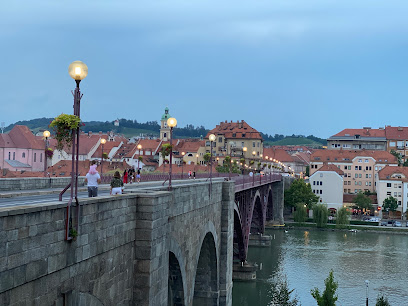
Akvarij-terarij Maribor
Experience the wonders of aquatic and terrestrial life at Akvarij-terarij Maribor, a must-visit tourist attraction in Slovenia!
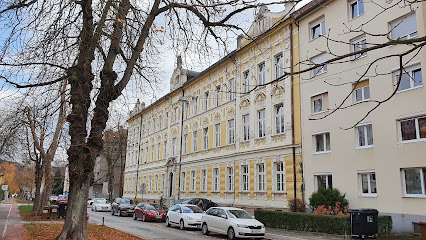
Maribor Puppet Theatre
Discover the magic of puppetry at the Maribor Puppet Theatre, where captivating performances and rich storytelling come to life in Slovenia's cultural heart.
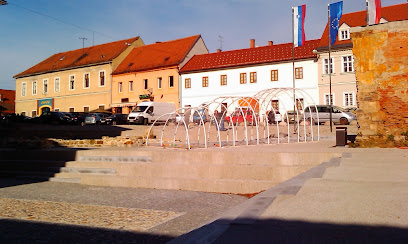
Lent
Explore Lent in Maribor, Slovenia - a historic district with vibrant culture, scenic riverside views, and the world's oldest grapevine.
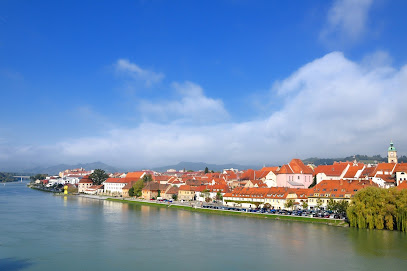
Kulturno prireditveni center narodni dom Maribor
Discover the heart of Maribor's cultural scene at the Kulturno Prireditveni Center Narodni Dom, where performances come alive in a stunning concert hall.
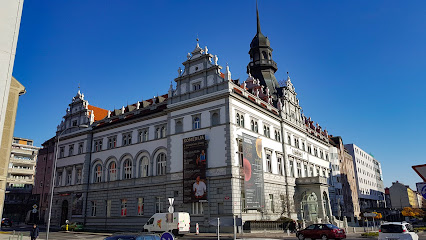
Dvorana Gustaf, KC Pekarna
Discover the heart of Maribor's cultural scene at Dvorana Gustaf, a premier concert hall hosting diverse musical performances and events.
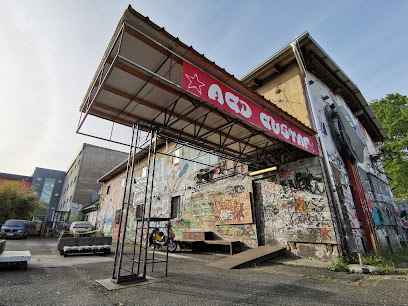
Vetrinjski dvor
Explore Vetrinjski Dvor, Maribor's stunning historical landmark, rich in culture and architectural beauty, perfect for history enthusiasts and casual travelers.
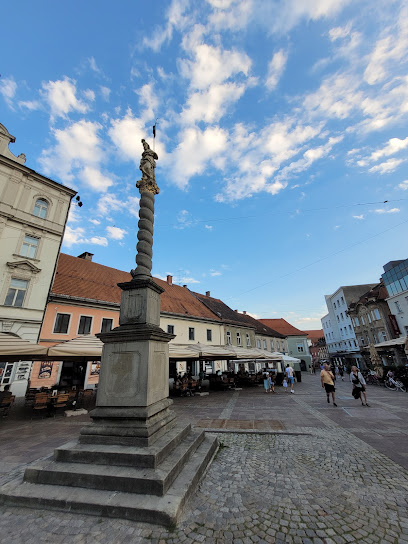
Enigmarium Escape Room Turnerjeva
Experience the thrill of mystery and teamwork at Enigmarium Escape Room in Maribor, Slovenia's premier destination for adventure seekers.
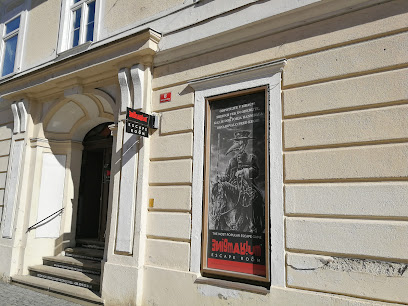
Chateau Ramšak, vineyard glamping resort
Discover the perfect blend of luxury and nature at Chateau Ramšak, a premier vineyard glamping resort in Maribor, Slovenia.
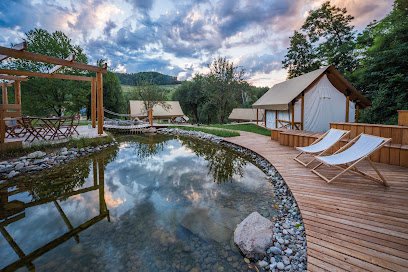
Unmissable attractions to see
Trakoscan Castle
Explore the historic Trakoscan Castle, a stunning Croatian landmark surrounded by nature, offering rich history and beautiful landscapes.
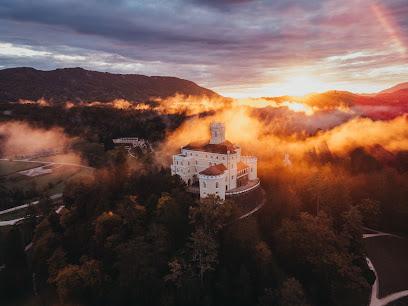
Krapina Neanderthal Museum
Explore the Krapina Neanderthal Museum, a premier destination for history lovers to discover the fascinating world of Neanderthals in Croatia.
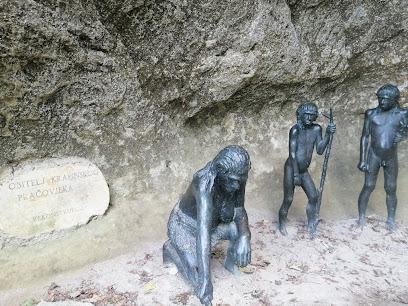
Celje Castle
Explore the enchanting Celje Castle, a historical fortress offering stunning views, rich heritage, and captivating tales from Slovenia's medieval past.
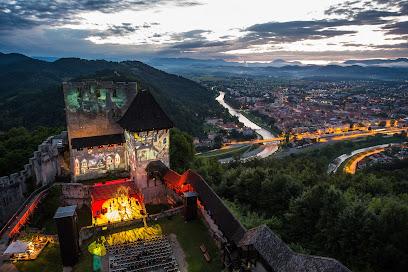
Ptuj Castle
Discover the historic Ptuj Castle, a breathtaking landmark offering insights into Slovenia's medieval heritage and stunning views of the surrounding landscape.
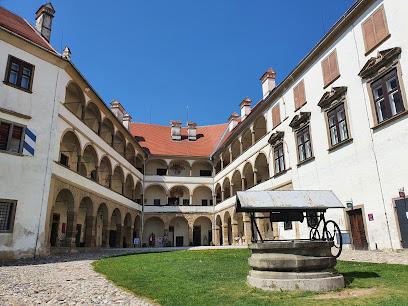
Pavilion EXPANO
Discover the cultural heart of Murska Sobota at Pavilion EXPANO, your gateway to local attractions, activities, and authentic Slovenian experiences.
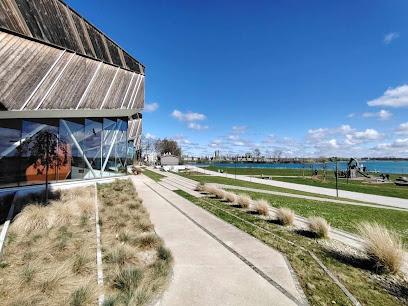
Velenje beach
Experience the beauty of Velenje Beach, a stunning swimming lake and holiday park that offers fun, relaxation, and adventure in the heart of Slovenia.
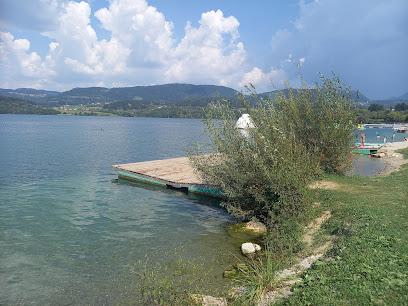
Dvor Veliki Tabor
Explore Veliki Tabor Castle, a stunning medieval fortress in Croatia, rich in history and surrounded by breathtaking countryside views.
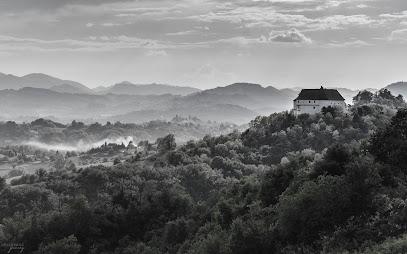
Vodni stolp - Water Tower
Discover the Vodni Stolp in Maribor: a stunning blend of history, breathtaking views, and a lively bar experience in Slovenia's picturesque city.
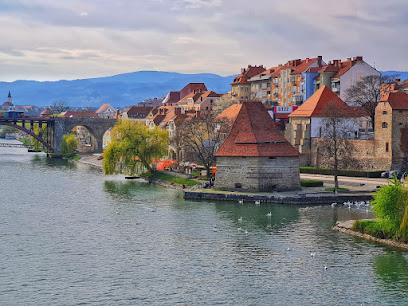
Trg Leona Štuklja
Discover tranquility and culture at Trg Leona Štuklja, a beautiful park in Maribor perfect for relaxation and exploration.
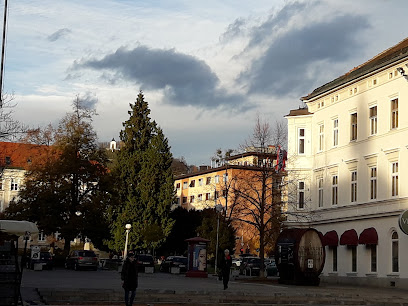
Stražun
Explore the breathtaking landscapes and rich biodiversity of Stražun, a serene nature preserve and national park in Maribor, Slovenia.
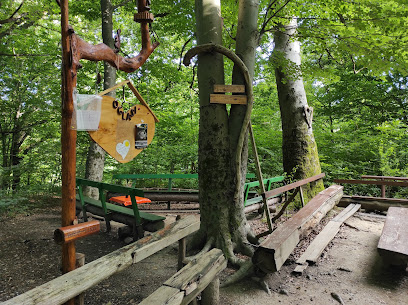
Stolna župnija Maribor
Explore the stunning Stolna Župnija Maribor, a Gothic masterpiece and cultural landmark in Slovenia, rich in history and architectural beauty.
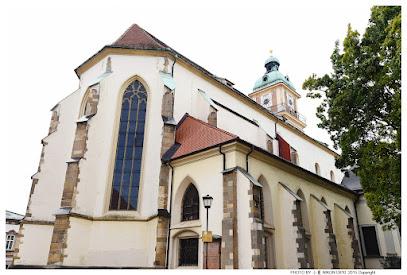
Babičev mlin
Explore the heritage of flour milling at Babičev Mlin in Veržej, Slovenia – a perfect blend of history, culture, and delicious local products.
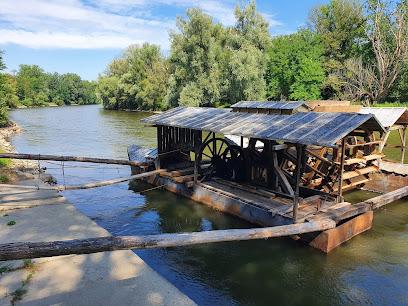
Pustolovski park Betnava
Experience the thrill of adventure at Pustolovski Park Betnava, Maribor's premier destination for outdoor fun and excitement amidst stunning nature.
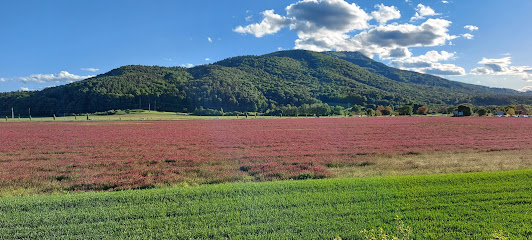
The Coal Mining Museum of Slovenia
Explore Slovenia's industrial heritage at The Coal Mining Museum, a captivating attraction showcasing the history and significance of coal mining.
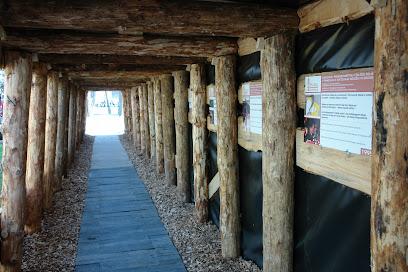
Akvarij-terarij Maribor
Explore diverse aquatic and terrestrial ecosystems at Akvarij-terarij Maribor, a captivating attraction for nature lovers and families alike.
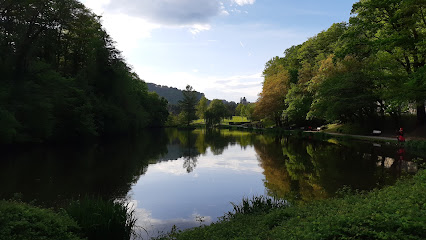
Essential places to dine
Jack & Joe Steak and Burger Club
Experience culinary bliss at Jack & Joe Steak and Burger Club - where barbecue meets gourmet burgers in Maribor's vibrant dining scene.
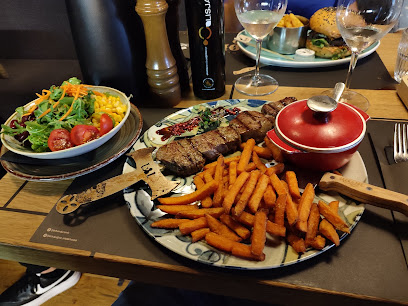
Baščaršija (Maribor Poštna)
Discover authentic Slovenian flavors at Baščaršija in Maribor – where tradition meets modern culinary art.
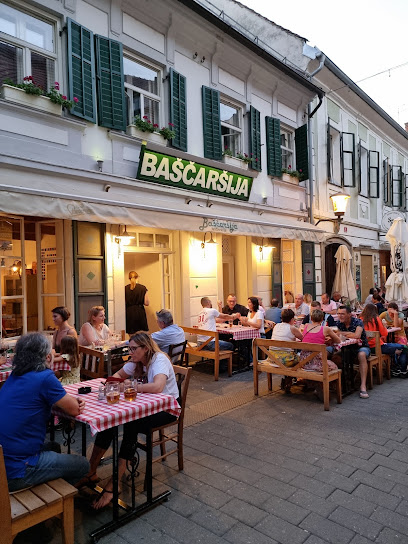
Restaurant Ancora
Experience authentic Slovenian cuisine with a modern twist at Restaurant Ancora in Maribor – where every meal tells a story.
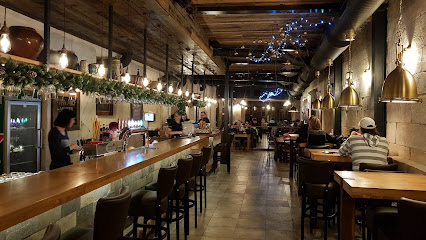
La Cantina
Discover authentic Italian flavors at La Cantina in Maribor – home to exquisite pizzas and delightful dishes served with warmth.
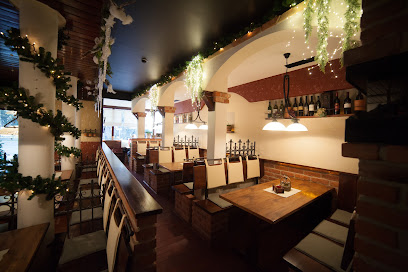
Pizzeria Pomodoro
Experience authentic Italian flavors at Pizzeria Pomodoro in Maribor – where every pizza tells a story.
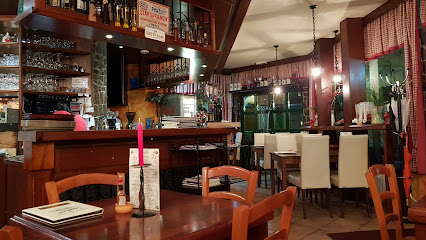
Baščaršija (Maribor Gosposvetska)
Experience authentic Eastern European cuisine at Baščaršija in Maribor – where tradition meets taste.
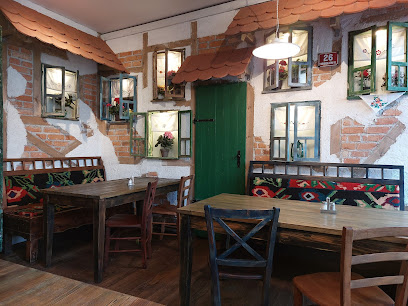
Nana Bistro & Kavarna
Experience the best brunch and desserts at Nana Bistro & Kavarna in Maribor - where local flavors meet delightful ambiance.
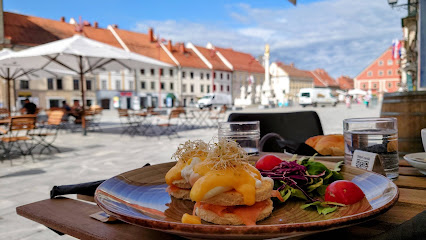
La Pizzeria
Discover authentic Italian flavors at La Pizzeria in Maribor - where every slice tells a story of tradition and taste.
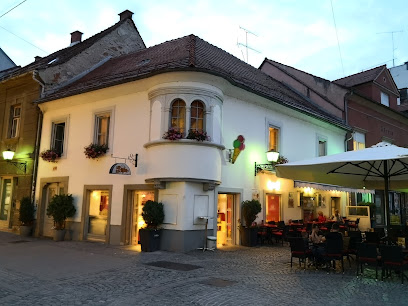
LUFT fun dining & cocktails
Discover LUFT Fun Dining & Cocktails in Maribor - A fusion of exquisite cuisine and crafted cocktails in a lively setting.
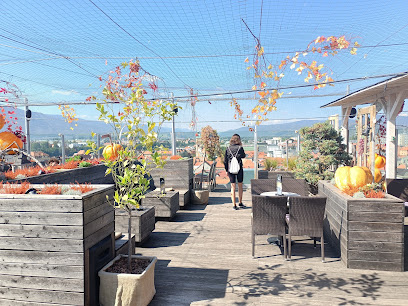
Gril Ranca, gostinstvo in druge storitve d.o.o.
Discover the authentic taste of Slovenia at Gril Ranca in Maribor - where every meal is a celebration of grilled perfection.
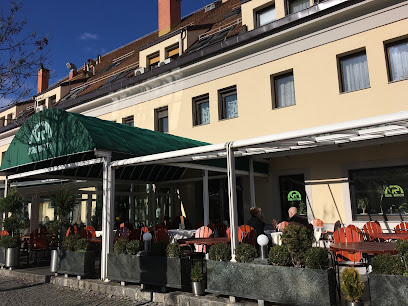
Novi Svet
Experience fresh seafood delights at Novi Svet in Maribor - where every dish tells a story of flavor and tradition.
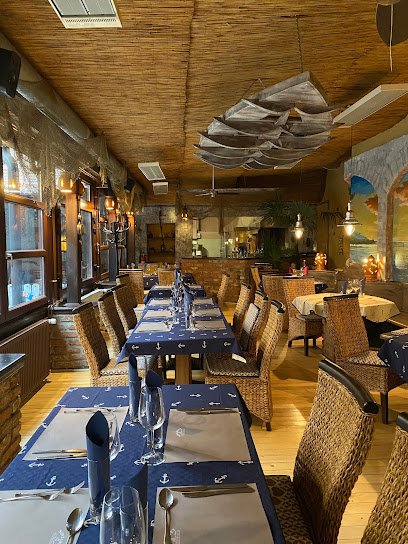
RESTAVRACIJA GALA ŽAR Denis Curović s.p.?
Savor the rich flavors of Serbia at Restavracija Gala Žar in Maribor - an authentic dining experience awaits you.
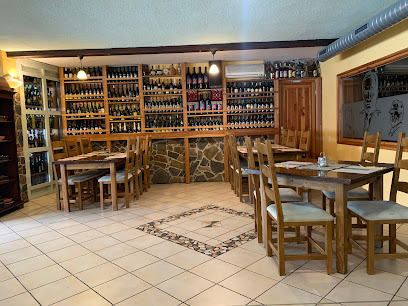
Rožmarin Hospitality Group
Discover exquisite Slovenian flavors at Rožmarin Hospitality Group in Maribor - where culinary art meets warm hospitality.
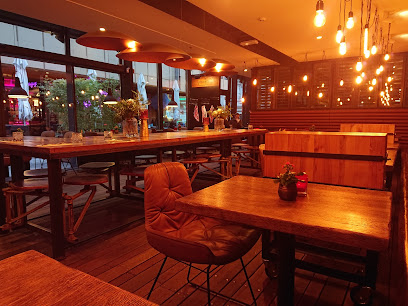
Patrick's Pub
Immerse yourself in local culture at Patrick's Pub in Maribor - enjoy delicious food and an extensive selection of Slovenian beers.
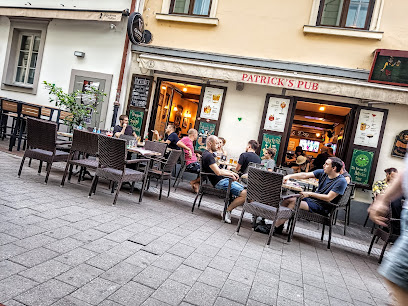
Mr Falafel
Discover the vibrant flavors of Middle Eastern cuisine at Mr. Falafel in Maribor – where every bite tells a delicious story.
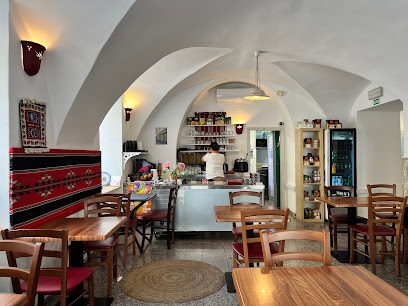
Markets, malls and hidden boutiques
Shopping center Europark Maribor
Discover Europark Maribor, Slovenia's largest shopping center, where shopping, dining, and entertainment come together in a vibrant atmosphere.
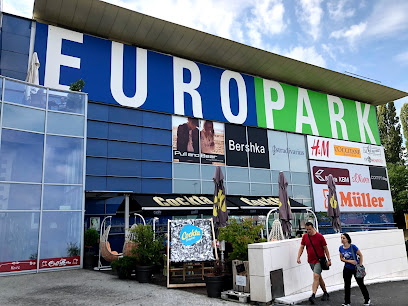
E.Leclerc Maribor (Rudnidis d. o. o.)
Explore E.Leclerc Maribor for an unforgettable shopping experience in Slovenia, blending convenience and variety in one vibrant location.
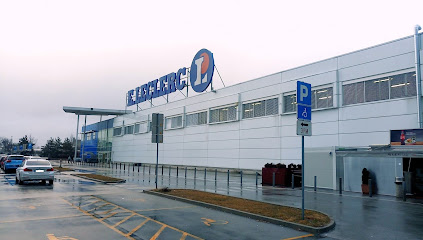
Supernova Qlandia Maribor
Explore Supernova Qlandia Maribor, a vibrant shopping mall featuring a variety of stores, dining options, and entertainment for the perfect day out.
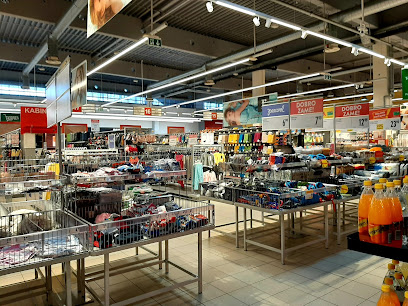
Supernova Maribor Tržaška
Discover the ultimate shopping experience at Supernova Maribor Tržaška, featuring diverse stores, delicious dining, and entertainment in Slovenia's vibrant city.
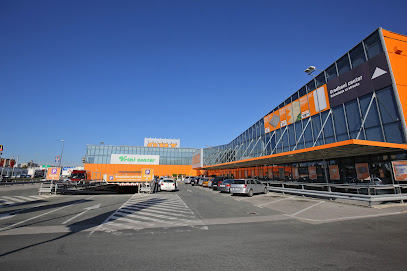
MC Pekarna
Discover the heart of Maribor’s music scene at MC Pekarna, where coffee, culture, and live performances come together in perfect harmony.
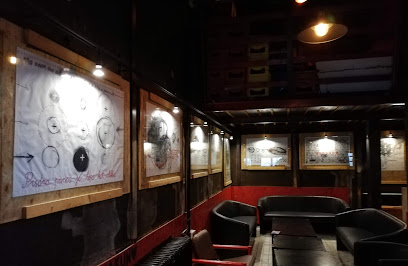
HI KO FI Maribor
Experience the delightful ambiance and exceptional coffee at HI KO FI, a charming café in the heart of Maribor, Slovenia.
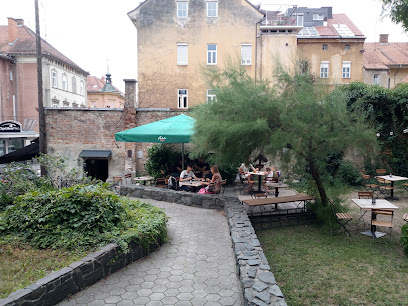
The Living Room
Discover Maribor's vibrant pub scene at The Living Room, where comfort meets style in a cozy atmosphere perfect for drinks or coffee.
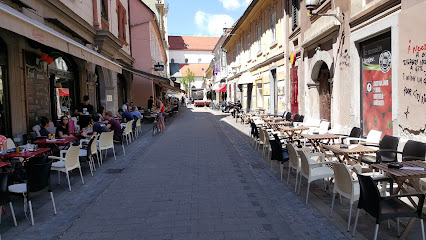
Hartman družba za glasbeno založništvo, trgovino, posredovanje, svetovanje in proizvodnjo d.o.o.
Experience the rich musical culture of Maribor at Hartman, your go-to store for quality instruments and expert advice.
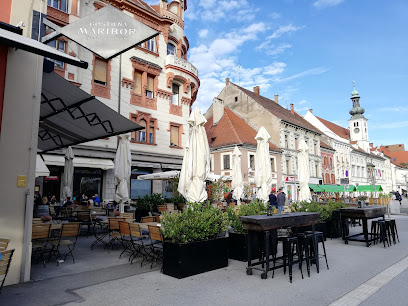
Trgovina Čeburaška, Nadiya Belec s.p.
Explore authentic Russian culinary delights and unique souvenirs at Trgovina Čeburaška in Maribor, Slovenia.
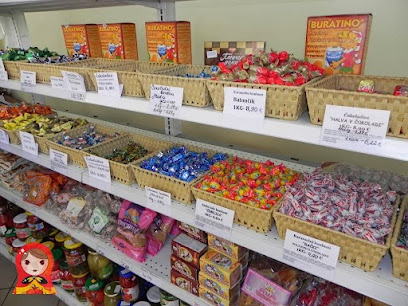
NK Maribor fan store
Explore the vibrant NK Maribor fan store, a must-visit for soccer fans and tourists seeking authentic local memorabilia in Maribor.
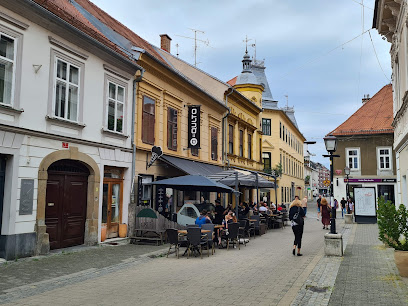
HIŠA DARIL - Maribor E.Leclerc
Discover unique Slovenian gifts at HIŠA DARIL in Maribor, featuring local crafts, artisanal products, and heartfelt souvenirs.
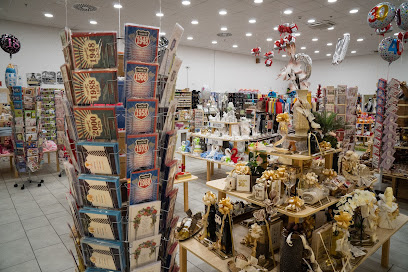
Tomas sport
Shop at Tomas Sport in Maribor for top-notch sporting goods and expert advice on your outdoor adventures in Slovenia.
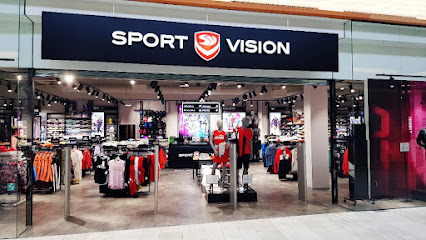
STOP SHOP Maribor
Explore STOP SHOP Maribor: A shopping paradise blending local charm with modern retail experiences in Slovenia's picturesque city.
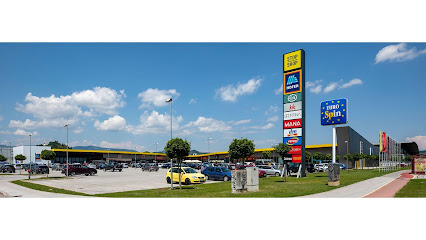
Party Shop Maribor
Explore Party Shop Maribor for an extensive range of party supplies, balloons, and gifts in the heart of Slovenia's vibrant city.
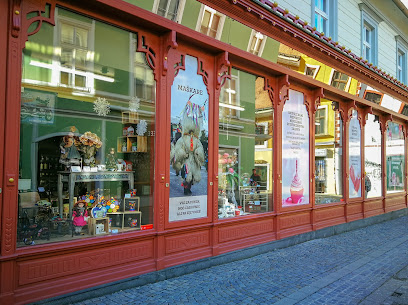
La Turka Shop
Explore La Turka Shop in Maribor for handcrafted treasures and a taste of Slovenian culture, perfect for unique gifts and souvenirs.
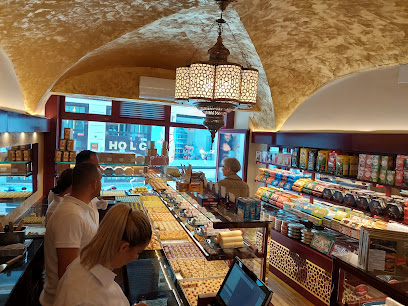
Essential bars & hidden hideouts
LUFT fun dining & cocktails
Experience the vibrant culinary scene at LUFT Fun Dining & Cocktails in Maribor, where unique flavors and lively ambiance come together.
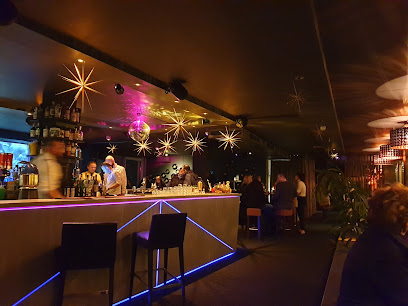
Papagayo Cocktail Bar & C H O C O
Discover the vibrant nightlife at Papagayo Cocktail Bar & C H O C O, where innovative cocktails and a lively atmosphere await you in Maribor.
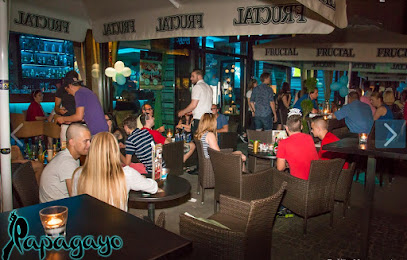
Mačka
Discover the lively ambiance of Mačka Bar in Maribor, where delightful drinks and friendly vibes await every visitor.
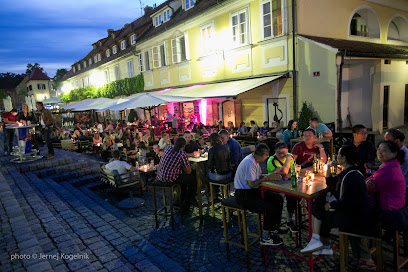
Niagara cocktail bar
Discover the vibrant nightlife at Niagara Cocktail Bar in Maribor, where innovative cocktails meet a lively atmosphere for an unforgettable experience.
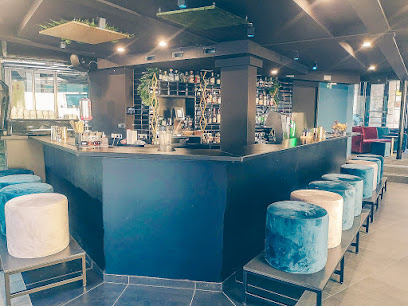
Piranha Cocktail Bureau
Discover Piranha Cocktail Bureau in Maribor – a lively bar with innovative cocktails and a vibrant atmosphere perfect for nightlife lovers.
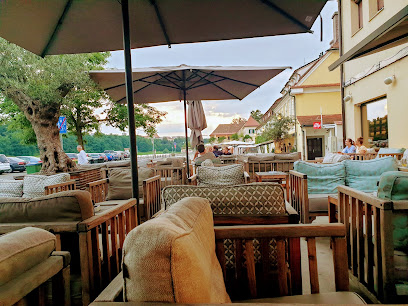
Kavarnica Rokaj
Discover the vibrant atmosphere of Kavarnica Rokaj in Maribor - a perfect bar for socializing with friends over drinks and enjoying local flavors.
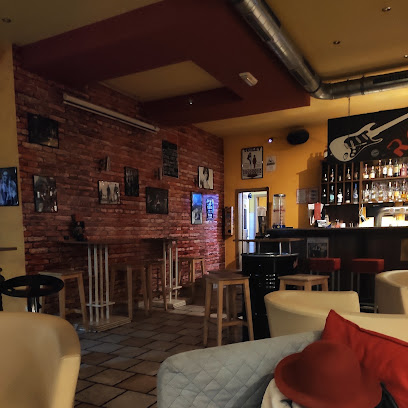
The Living Room
Discover The Living Room in Maribor - a cozy pub and coffee shop perfect for relaxation, socializing, and savoring local flavors.
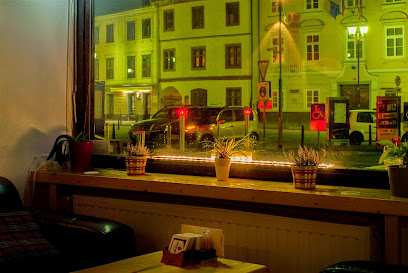
Bar Artur
Discover Bar Artur in Maribor: A lively bar offering a delightful selection of drinks and a vibrant atmosphere perfect for unwinding and socializing.
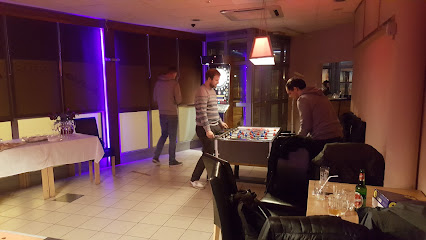
English Pub
Discover the lively English Pub in Maribor, where local brews and hearty meals create an unforgettable ambiance.
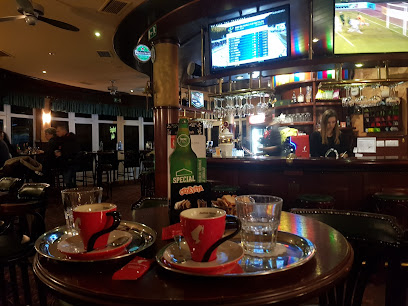
SKIPPER BAR
Discover the vibrant atmosphere of Skipper Bar in Maribor, where great drinks meet a lively ambiance perfect for tourists and locals alike.
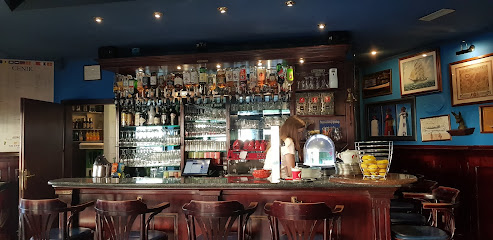
Pub Gambrinus
Discover the authentic taste of Slovenia at Pub Gambrinus, Maribor's beloved beer hall offering a diverse selection of local brews and hearty cuisine.
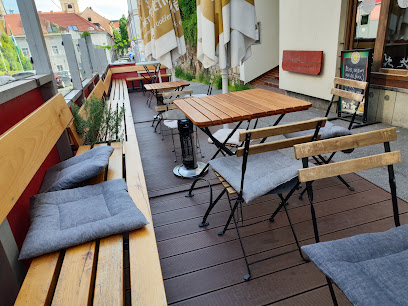
Tropic Pub
Discover the vibrant atmosphere of Tropic Pub in Maribor, where affordable drinks and friendly service create a perfect night out.
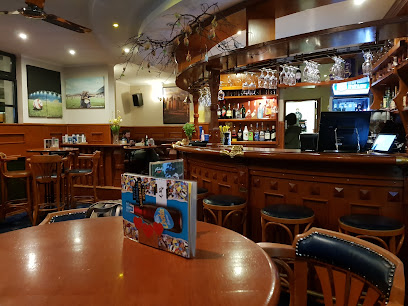
LeVino Wine Bar
Discover the charm of Maribor at LeVino Wine Bar – a haven for wine lovers with exquisite selections and a cozy ambiance.
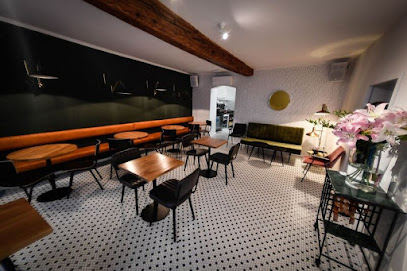
Beerhouse Bass Maribor
Discover the rich beer culture of Maribor at Beerhouse Bass, a lively bar perfect for tourists seeking a memorable night out.
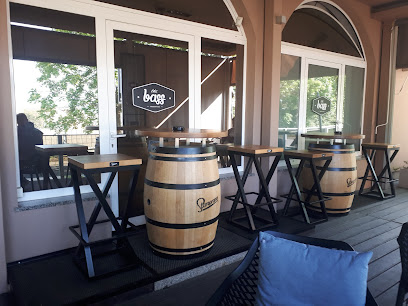
Local Phrases
-
- HelloŽivjo
[Zhee-vyoh] - GoodbyeNasvidenje
[Nahs-vee-deh-nyeh] - YesJa
[Yah] - NoNe
[Neh] - Please/You're welcomeProsim
[Pro-seem] - Thank youHvala
[Hvah-lah] - Excuse me/SorryOprostite
[Oh-pros-tee-teh] - How are you?Kako si?
[Kah-koh see] - Fine. And you?V redu. In ti?
[V reh-doo. Een tee] - Do you speak English?Govorite angleško?
[Go-vo-ree-te ahn-gleh-shko] - I don't understandNe razumem
[Neh rah-zoo-mehm]
- HelloŽivjo
-
- I'd like to see the menu, pleaseŽelel bi videti meni, prosim
[Zheh-lehl bee vee-deh-tee meh-nee, pro-seem] - I don't eat meatNe jem mesa
[Neh yehm meh-sah] - Cheers!Na zdravje!
[Nah zdrah-vyeh] - I would like to pay, pleaseŽelel bi plačati, prosim
[Zheh-lehl bee plah-cha-tee, pro-seem]
- I'd like to see the menu, pleaseŽelel bi videti meni, prosim
-
- Help!Pomoč!
[Poh-mohch] - Go away!Pojdi stran!
[Poy-dee strahn] - Call the Police!Pokliči policijo!
[Poh-klee-chee po-lee-tsee-yo] - Call a doctor!Pokliči zdravnika!
[Poh-klee-chee zdrahv-nee-kah] - I'm lostIzgubil sem se
[Eez-goo-beel sehm seh] - I'm illBolam
[Boh-lahm]
- Help!Pomoč!
-
- I'd like to buy...Želim kupiti...
[Zheh-leem koo-pee-tee] - I'm just lookingSamo gledam
[Sah-moh gleh-dahm] - How much is it?Koliko stane?
[Koh-lee-koh stah-neh] - That's too expensiveTo je predrago
[To yeh preh-drah-goh] - Can you lower the price?Lahko znižate ceno?
[Lah-koh znee-zah-teh cheh-no]
- I'd like to buy...Želim kupiti...
-
- What time is it?Koliko je ura?
[Koh-lee-koh yeh oo-rah] - It's one o'clockJe ena ura
[Yeh eh-nah oo-rah] - Half past (10)Pol desetih
[Pohl deh-seh-teeh] - MorningJutro
[Yoo-troh] - AfternoonPopoldne
[Poh-pohl-dneh] - EveningVečer
[Veh-chehr] - YesterdayVčeraj
[Vcheh-rye] - TodayDanes
[Dah-nes] - TomorrowJutri
[Yoo-tree] - 1Ena
[Eh-nah] - 2Dva
[Dvah] - 3Tri
[Tree] - 4Štiri
[Shtee-ree] - 5Pet
[Peh-t] - 6Šest
[Shest] - 7Sedem
[Seh-dehm] - 8Osem
[Oh-sehm] - 9Devet
[Deh-veht] - 10Deset
[Deh-seht]
- What time is it?Koliko je ura?
-
- Where's a/the...?Kje je ...?
[Kyeh yeh] - What's the address?Kakšen je naslov?
[Kahk-shen yeh nahs-lohv] - Can you show me (on the map)?Mi lahko pokažete (na zemljevidu)?
[Mee lah-koh poh-kah-zheh-teh (nah zehm-lyeh-vee-doo)] - When's the next (bus)?Kdaj je naslednji (avtobus)?
[Kdyay yeh nah-slehd-nee (ahv-toh-boos)] - A ticket (to ....)Ena vozovnica (do ...)
[Eh-nah vo-zov-nee-tsah (doh)]
- Where's a/the...?Kje je ...?
History of Maribor
-
The history of Maribor dates back to the 12th century when it was first mentioned as a castle in the possession of the Spanheim family. The strategic location along the Drava River made it an important settlement for trade and defense in medieval times. The town rapidly grew around the castle, becoming a significant market town by the late 13th century.
-
Maribor Castle, built in the 15th century, is a pivotal landmark of the city's medieval heritage. Initially constructed to defend against Ottoman invasions, it later became the residence of local nobility. The surrounding town flourished, marked by the construction of significant buildings such as the Maribor Cathedral, the City Hall, and various monasteries.
-
The 16th century brought religious upheaval to Maribor, as it did to much of Europe. The Reformation led to significant Protestant influence in the city. However, the Counter-Reformation initiated by the Catholic Church saw a resurgence of Catholicism, marked by the establishment of Jesuit institutions and the construction of new churches.
-
Maribor became part of the Habsburg Monarchy in the 18th century, leading to a period of stability and growth. The industrial revolution of the 19th century transformed Maribor into a bustling industrial center. The introduction of the railway in 1846 further boosted economic development, making it a vital transport hub in the region.
-
Following the collapse of the Austro-Hungarian Empire after World War I, Maribor became part of the newly formed Kingdom of Serbs, Croats, and Slovenes (later Yugoslavia). This period was marked by political and social changes as the city adjusted to its new national identity and borders.
-
During World War II, Maribor was occupied by Nazi Germany. The city suffered significant destruction due to bombings and was a site of intense resistance activity. The Jewish community of Maribor was particularly affected, with many members deported to concentration camps. The liberation of the city in 1945 marked the end of a brutal period in its history.
-
After World War II, Maribor became part of Socialist Yugoslavia. The post-war period was characterized by extensive reconstruction and economic development. Industrial growth continued, and the city's population expanded. This era also saw the establishment of cultural and educational institutions, contributing to Maribor’s modern identity.
-
With the dissolution of Yugoslavia in 1991, Maribor became part of the independent Republic of Slovenia. The city underwent significant political and economic transitions, integrating into the European Union in 2004. Today, Maribor is known for its vibrant cultural scene, historic landmarks, and annual events such as the Lent Festival, which celebrate its rich history and diverse heritage.
Maribor Essentials
-
Maribor is easily accessible by various modes of transportation. The nearest international airport is Ljubljana Jože Pučnik Airport, approximately 125 kilometers away. From the airport, you can take a direct shuttle, bus, or train to Maribor. Alternatively, Graz Airport in Austria is another option, located about 60 kilometers from Maribor. Trains and buses from major European cities also run to Maribor, making it a convenient destination.
-
Maribor has an efficient public transportation system, including buses and taxis. The city's bus network is extensive, covering all major attractions and neighborhoods. Tickets can be purchased at kiosks or directly from the bus driver. Taxis are readily available and can be hailed on the street or booked via phone apps. For a more flexible option, car rentals are available at various locations throughout the city.
-
The official currency in Slovenia is the Euro (EUR). Credit and debit cards are widely accepted in most hotels, restaurants, and shops. However, it is advisable to carry some cash for smaller establishments and markets. ATMs are plentiful and can be found throughout Maribor, ensuring you have easy access to cash when needed.
-
Maribor is generally a safe city for tourists. However, as with any travel destination, it is essential to take standard precautions. Avoid walking alone in poorly lit areas at night, and keep an eye on your belongings in crowded places. The areas around the main train station and some parts of the old town can be hotspots for petty crimes such as pickpocketing, so remain vigilant.
-
In case of emergency, dial 112 for immediate assistance, which covers police, medical, and fire services. Maribor has several hospitals and clinics, including the University Medical Centre Maribor. Pharmacies are also available throughout the city for minor health issues. It is advisable to have travel insurance that covers medical emergencies.
-
Fashion: Do dress comfortably but modestly, especially when visiting religious sites. Avoid overly revealing clothing. Religion: Do respect local customs and traditions. Public Transport: Do be courteous and offer your seat to elderly passengers. Don’t eat or drink on public transport. Greetings: Do greet people with a handshake and maintain eye contact. Eating & Drinking: Do try local delicacies and accept food offerings graciously. Don’t refuse hospitality, as it is considered impolite.
-
To experience Maribor like a local, visit the lively Maribor Central Market, where you can buy fresh produce and local specialties. Engage with locals, who are often friendly and willing to share stories about the city's history and culture. Don’t miss visiting the Old Vine House, home to the world's oldest grapevine. For a unique experience, take a walk along the Drava River or hike up Pohorje Mountain for breathtaking views.
Trending Landmark in Maribor
-
Mariborsko Pohorje
-
Maribor Castle
-
Vodni stolp - Water Tower
-
Plague Column
-
Trg Leona Štuklja
-
Stolna župnija Maribor
-
Železniška postaja Maribor
-
Akvarij-terarij Maribor
-
Maribor Puppet Theatre
-
Lent
-
Kulturno prireditveni center narodni dom Maribor
-
Dvorana Gustaf, KC Pekarna
-
Vetrinjski dvor
-
Enigmarium Escape Room Turnerjeva
-
Chateau Ramšak, vineyard glamping resort
Nearby Cities to Maribor
-
Things To Do in Ptuj
-
Things To Do in Rogaška Slatina
-
Things To Do in Celje
-
Things To Do in Velenje
-
Things To Do in Graz
-
Things To Do in Zagreb
-
Things To Do in Kamnik
-
Things To Do in Zalaegerszeg
-
Things To Do in Klagenfurt
-
Things To Do in Ljubljana
-
Things To Do in Szombathely
-
Things To Do in Škofja Loka
-
Things To Do in Bled
-
Things To Do in Keszthely
-
Things To Do in Bohinj


















